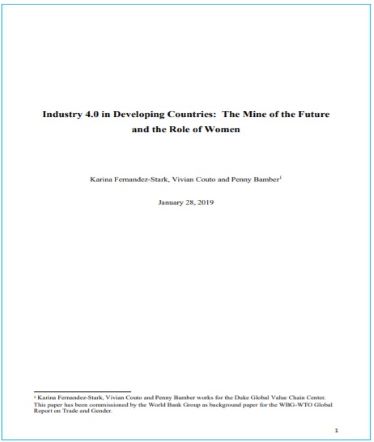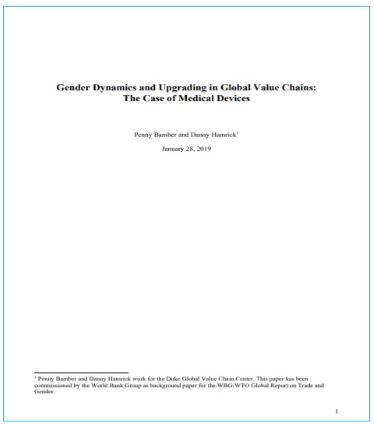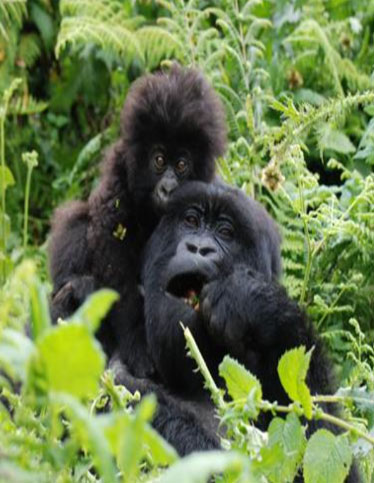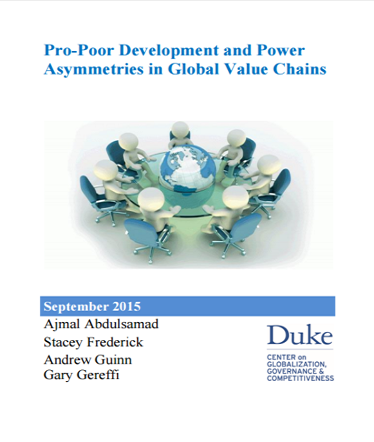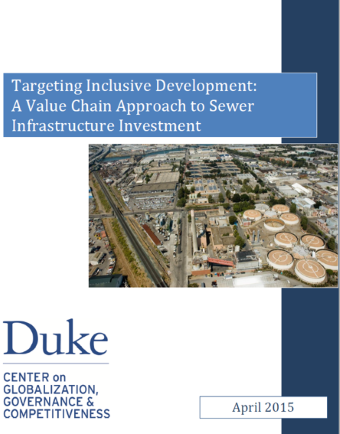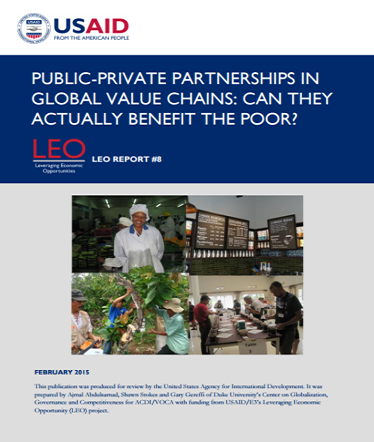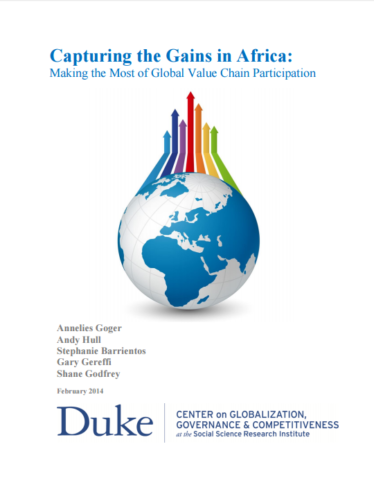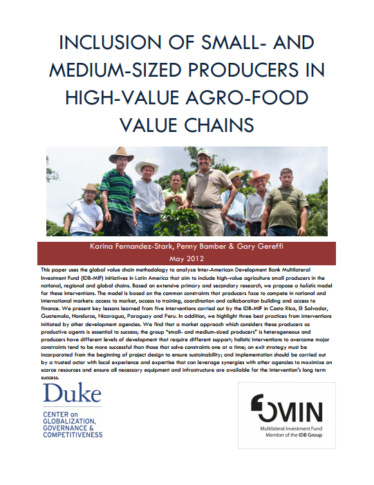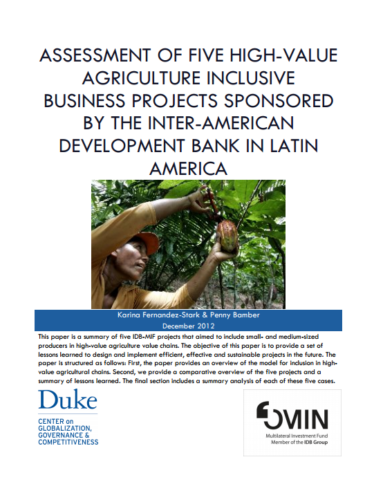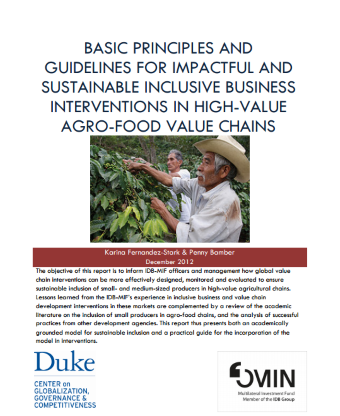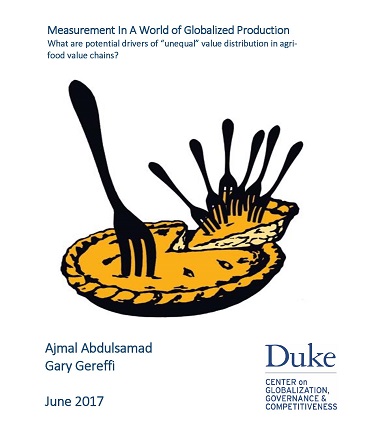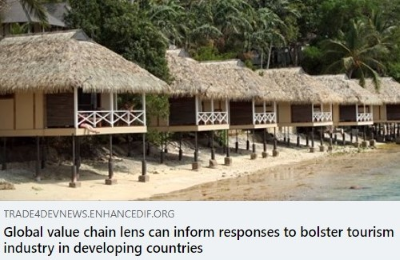
A recurring topic facing development practitioners is understanding why certain economic actors are unable to gainfully participate in global value chains (GVCs), and how to overcome this issue. Inclusive development seeks to ensure all parties have equal opportunities to gainfully participate in industrial development – the focus of inclusivity may refer to countries (e.g., developing, lower-income, small or remote locations), firms (e.g., small- and medium-sized firms), or workers (e.g., women, youth, locals).
Research questions addressed include: How can developing countries gainfully engage in GVCs? What are the main constraints that small- and medium-sized firms in emerging nations face to participate in GVCs? What types of policies are successful in linking new economic actors to the global economy and what opportunities do these economic actors have to participate in value chains?
Following the USAID Breakfast Seminar #72 on September 20, 2012 “New Trends in Value Chain Upgrading: Lessons from Large and Small Countries,” Gary Gereffi sat down with Jeanne Downing of USAID to discuss the definition of inclusive value chain development (View YouTube video).
Industry 4.0 in Developing Countries: The Mine of the Future and the Role of Women
VIEW SUMMARY
Gender Dynamics and Upgrading in Global Value Chains: The Case of Medical Devices
VIEW SUMMARY
Primates and Beyond: Tourism Value Chains in East Africa
VIEW SUMMARY
Chlorhexidine for Umbilical Cord Care: A Value Chain Analysis in Bangladesh
VIEW SUMMARY
Pro-Poor Development and Power Asymmetries in Global Value Chains
VIEW SUMMARY
Targeting Inclusive Development: A Value Chain Approach to Sewer Infrastructure Investment
VIEW SUMMARY
Public-Private Partnerships in Global Value Chains: Can They Actually Benefit the Poor?
VIEW SUMMARY
The Tobacco Global Value Chain in Low Income Countries
VIEW SUMMARY
Capturing the Gains in Africa: Making the Most of Global Value Chain Participation
VIEW SUMMARY
Inclusion of Small- and Medium-Sized Producers in High-Value Agro-Food Value Chains
VIEW SUMMARY
Assessment of Five High-Value Agriculture Inclusive Business Projects
VIEW SUMMARY
Basic Principles & Guidelines for Impactful & Sustainable Inclusive Business Interventions in High-Value Agro-Food Value Chains
VIEW SUMMARY
Supporting the Competitiveness of Central American Coffee
VIEW SUMMARY
Case: Development of Micro and Small Rural Apicultural Producers in Nicaragua & Honduras
VIEW SUMMARY
Case: Conversion to Organic Cacao Cultivation in Peru
VIEW SUMMARY
Case: Strengthening the Competitiveness of Organic Producers in Andean Microwatersheds
VIEW SUMMARY
Case: Strengthening the Competitiveness of the Stevia Value Chain in Paraguay
VIEW SUMMARY
The Competitiveness of Small Organic Cocoa Producers of CONACADO
VIEW SUMMARY
Measurement in a World of Globalized Production: What are Potential Drivers of 'Unequal' Value Distribution in Agri-Food Value Chains?
VIEW SUMMARY
GVC lens can inform responses to bolster tourism industry in developing countries
VIEW SUMMARY
The Gender Dimensions of Global Value Chains
VIEW SUMMARY
Connecting to the World Market through Regional Value Chains: Partnership Opportunities in Coconut Value Chain for the Small Caribbean Economies
VIEW SUMMARY
Inclusive Value Chain Interventions in the High-Value Agrifood Sector in Latin America
VIEW SUMMARY

